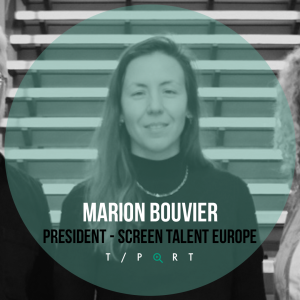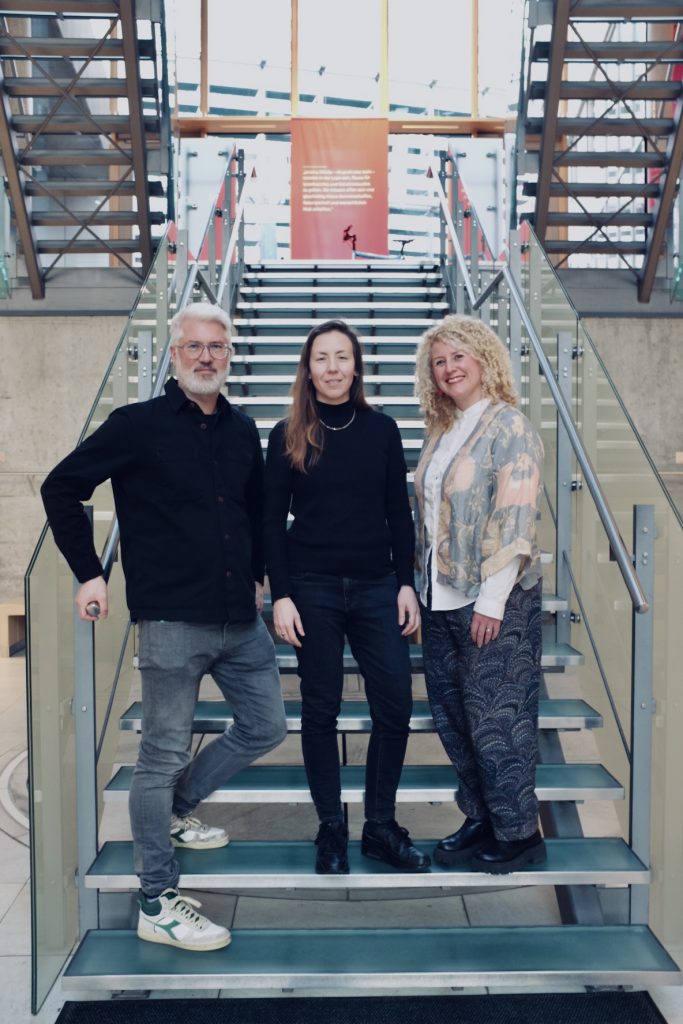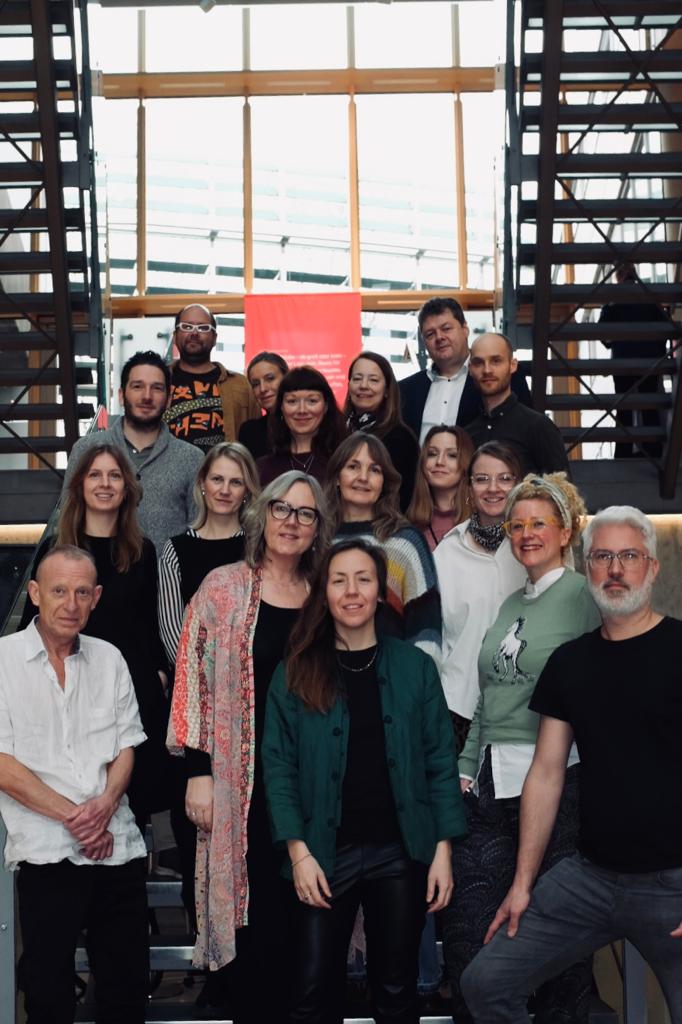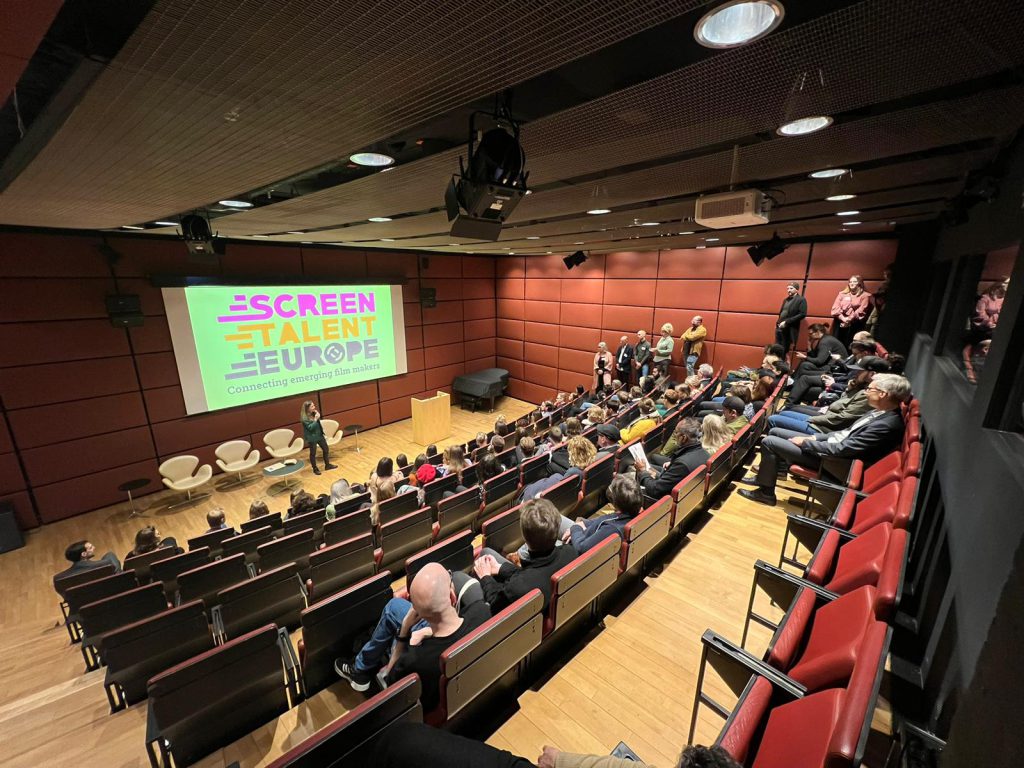
Marion Bouvier is the President of Screen Talent Europe, a network of film workshops and media centres around Europe whose goal is to help filmmakers exchange knowledge, experiences and methods through talent camps, network meetings and co-productions.
We caught up with her to find out more about how STE work with upcoming filmmakers to help the produce and distribute their work professionally, as well as her views on short film as a medium, plus a little romance!
What about your role and organisation do you find most inspiring?
Being part of Screen Talent Europe is an inspiring opportunity to meet professionals who work with film talent development from all over Europe. We learn a lot from one another, both informally and through projects we jointly initiate. This knowledge exchange is crucial considering that we face many of the same challenges and questions in the emerging film industry both at a European and at an international level.

There are good films, but, in your personal opinion, what makes a great film and how do you separate the two?
A great film is not only well-made but invents its own visual language to tell a strong story in a way that stays with the viewer. I am personally always very aware of the screenplay: great storytelling is not necessarily epic, it can be very low-key and concern itself with very “small” and ordinary subjects; if told in a unique, captivating way, any story can be turned into a masterpiece. One standout example of this would be Chantal Akerman’s “Jeanne Dielman, 23 quai du Commerce, 1080 Bruxelles”: an extraordinary film featuring one sole protagonist going about her daily chores.

If you could only watch one film on a loop for the rest of time, what would it be?
I honestly believe that any film watched on loop would ultimately become tedious, I have to say. I would choose to watch what’s happening outside my window! Cinema cannot match life.
What makes your organisation special?
Screen Talent Europe gathers 16 organisations across 8 European countries – that is a great collection of skills, knowledge and passionate individuals to have on board! STE works both as an active network that promotes cooperation between film workshops and media centres, and as a creator of common projects aimed at emerging filmmakers. On top of network meetings, film workshops and talent camps, we also organise a public event at the Berlinale every year to promote young filmmakers from across our organisations. And of course, we’re on T-Port – which means more visibility for our talents.
What advice would you give for upcoming filmmakers who want to get involved? Where do they start?
Check out with your local organisation (you can find all STE partners on our website screentalent.eu) and ask them what’s on! You can also follow our Screen Talent Europe’s instagram to keep yourself posted about what we’re organising.

Do you have any events you’d like to promote – tell us about them here.
On June 8 this year, Screen Talent Europe will have its own pitching forum in Grimstad (southern Norway). Emerging filmmakers affiliated with 12 organisations will get to pitch their ideas to a professional jury, and the winner will win 4000 EUR. The pitching is public, so if you are at the Norwegian Short Film Festival, join us!
Why are short films important?
I would argue that short film making is the epitome of film-making, as you have to use all your craft and skills to create a remarkable film within a limited screentime.
I personally love the short film format, it can produce such creativity and very impactful stories! I generally watch around 2000 short films per year (as a festival programmer and as a festival-goer), and I am always amazed by the diversity of short films I see – every year I am surprised by the inventiveness of short film-makers.
A short film can also be a way to draft a great idea and experiment with character development, and potentially developing the short to a feature.

Where do you see the world of Short Films in 10 years, what should/needs to change?
I hope that people continue to make short films and tell their stories, and that more young talents get access to filmmaking tools and knowledge. I would like to see even more short films that are made outside of the frame of film schools, although film schools are also important in their own ways.
What do you think is lacking in the process of distributing and promoting short films by upcoming filmmakers?
I think there is a misconception that short films, especially those made by emerging filmmakers, are not as important as feature films or more commercial projects. That is nonsense to me. I keep seeing short films made by young talents that are better than many commercial projects available on big streaming platforms or screened at major festivals. I believe that the industry –producers, buyers and distributors– need to turn its attention more often towards short films, and invest more prominently in the short film format.
What do feel young film talents lack the most today, after graduating from film school? Where are the gaps in the film industry?
The first problem is production funding. Oftentimes after a young filmmaker has made their first film, let’s say through school, they will struggle to find a producer or to get the funding they need to pursue filmmaking on a professional level. That is something we at Screen Talent Europe work with –how to enable talents to continue making films and to take their career to the next level.
There’s also still a lack when it comes to screening and distribution of emerging filmmakers’ short films, both at festivals and on TV and streaming platforms.
That means we need to promote audiences’ awareness of short films, which interestingly, is actually growing: if you look at Netflix, short films are increasingly available and popular. I think film education, as viewers, should start from primary school, so that kids learn to enjoy watching short films and understand the format. I believe that would result in more interest and consequently the creation of more platforms for the screening and distribution of short films.
What is your single most important piece of advice for upcoming filmmakers to follow?
Never forget that filmmaking is always team work: attend film camps and film workshops, they are really helpful not only to hone your skills, but also to meet other talents who might become part of your next filmmaking crew.
Is there anything else you would like to mention?
This was absolutely not planned, but I met the love of my life at a Screen Talent Europe event. I am not saying that you will necessarily meet your next partner through STE, but who knows, maybe you will too?! Or at least I am sure you will meet some new friends and collaborators.
If you are a film industry professional and would like access to the catalogue and more, find out here how to sign up.
Filmmaker? Upload your short film to T-Port or sign up for our newsletter to get regular updates on the current trends and exciting innovations in the short film universe.
